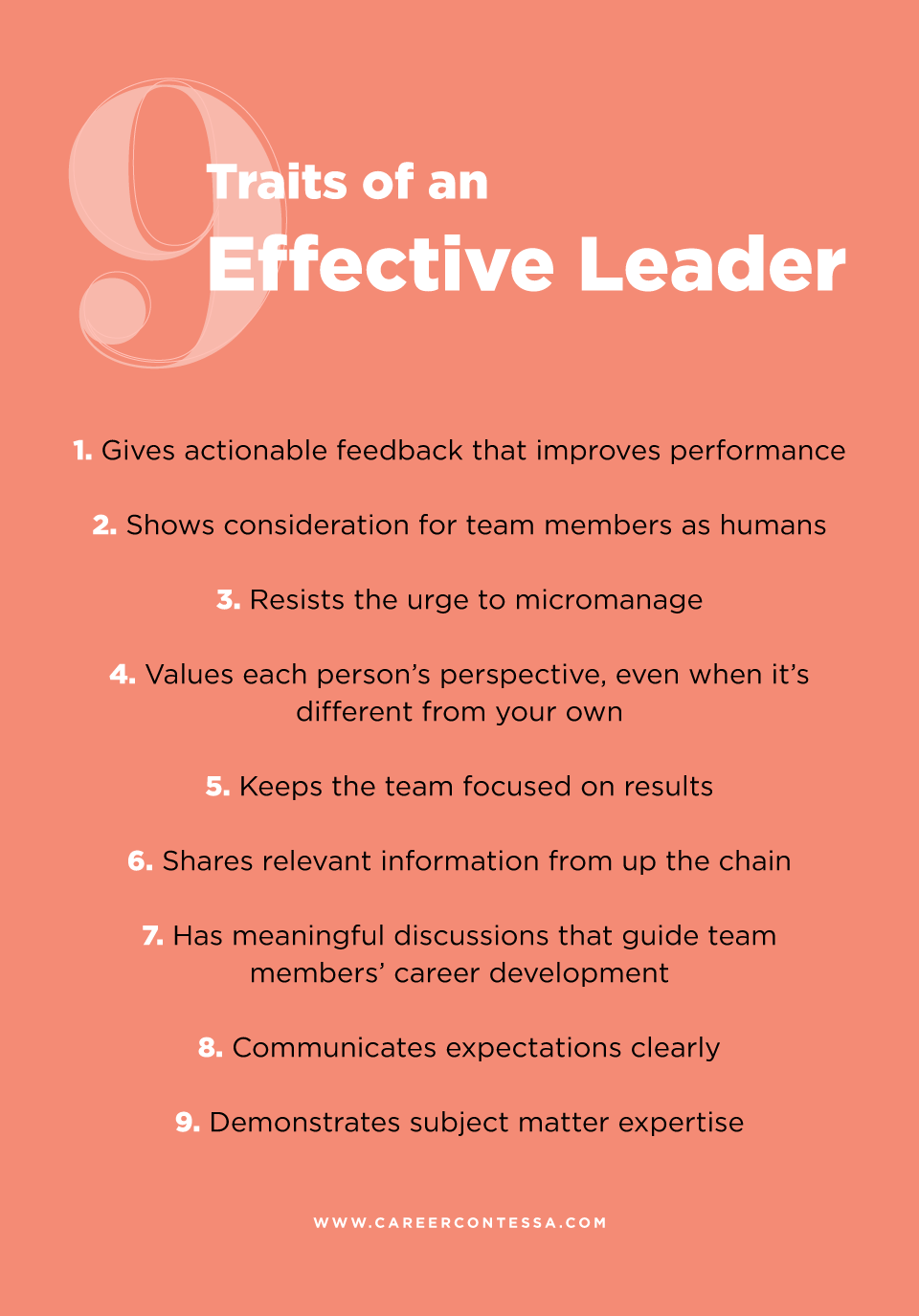This article by Sarah Goff-Dupont originally appeared in Work Life by Atlassian. It is republished with permission.
Someday I hope to be a totally mediocre manager.-Nobody ever
Many people who take on leadership positions flounder in the role. The qualities that make you an outstanding accountant, developer, marketer, or customer service rep may earn you a manager title, but they aren’t the same skills you’ll need to do the job well. And most likely, that promotion doesn’t come with extensive leadership training.
It seems Google is determined to do better for their managers and the teams they lead. They’ve parlayed their research on high-performing teams into a feedback mechanism that helps leaders understand how they’re doing and which traits they might need to develop further. Every so often, employees answer a
13-point questionnaire regarding their manager’s performance. The questionnaire’s contents reveal what, according to Google’s research, makes for effective leadership.
1. Give Actionable Feedback That Improves Performance
The best way to make feedback actionable is to make it immediate. Don’t wait until annual review time. Don’t even wait until your next
1-on-1 meeting. Whenever possible, deliver feedback within a day of whatever event you’re commenting on so it’s fresh in everyone’s minds. And don’t stress about formalities.
A quick word in the hallway or ping via chat is perfectly fine. (Unless we’re talking about critical feedback on a loaded issue. In that case, grab a private room and sit down together.)
Kim Scott, author of
Radical Candor (and, notably, a former Google exec) argues you need only two elements to provide effective feedback: show that you care personally and challenge the other person directly.
Don’t sugar-coat a critique, but deliver it with compassion. Without the right fuel-air mixture of empathy and directness, you’ll veer off into coddling, manipulative, or (eep!) aggressive territory.
2. Show Consideration For Team Members As Humans
There are loads of way to do this, so I’mma talk about my top three. First, be a good listener. Shut your laptop during meetings as much as possible, don’t check your phone while a team member is standing at your desk, summarize what they’ve said to confirm you’ve understood correctly… all those active listening things.
Second, try to be open-minded about flexible working arrangements. Let your people work from home when they need to care for a sick child or have to let the plumber in. Or maybe they have a long commute and need to shift their hours earlier or later to avoid the worst of rush-hour traffic. If you’re willing to entertain reasonable requests, they’ll pay you back in dedication and loyalty.
Last, celebrate the small wins. A team lunch after reaching an important goal shows you care and helps team members form personal connections. Even a quick public acknowledgment when somebody turns in outstanding work goes a long way.
3. Resist The Urge To Micromanage
You’ve hired capable people. Now, get out of their way so they can spread their wings. In his book Drive, Daniel Pink talks about autonomy as being one of the three keys to motivation. (The other two are a path to mastery and a sense of purpose.)
In other words, few things suck the morale out of people more than being told exactly what to do and when to do it. Work with your organization to define high-level objectives and agree on how you’ll measure success. Both Google and Atlassian use the
OKRs framework, which stands for Objectives and Key Results – “results” being the operative word.
How to achieve these goals should largely be left up to team members. They’re closest to the work, and giving them some autonomy helps their professional growth.
4. Value Each Person’s Perspective, Even When It’s Different From Your Own
Great minds don’t always think alike. In fact, divergent thinking is probably the most important ingredient for solving complex problems in novel ways. There are simple things you can do as a leader to encourage it.
First, actively invite your team to challenge your decisions when they disagree and offer new ideas. Explain that creative friction is a Good Thing™—that you didn’t hire them to agree with you all the time. (You didn’t, right?)
Then, when someone is brave enough to take you at your word, acknowledge them for having the courage to share their thoughts. These two behaviors will help create an environment of psychological safety and a culture of respectful dissent.
5. Keep The Team Focused On Results
It’s comforting to think in terms of tasks to complete. As soon as the task is complete you get the (deep, deep) satisfaction of moving that item to the “done” column and getting started on the next one. But the business doesn’t care about your to-do list. It cares about what you were able to achieve. Outcomes count. Outputs of effort… kinda don’t.
In my experience,
great leaders give people a measurable target to hit and give them the space to run at it. That means making sure their plates aren’t overly full so they can keep iterating until they’ve achieved the desired outcome and checking in regularly, which helps keep momentum up. It also means giving them as much decision-making authority as possible.
6. Share Relevant Information From Up The Chain
Leaders who are transparent whenever it’s practical (and sometimes when it’s not) help build trust within their organization. Plus, your team will accomplish more – more of the right things – when they see how their work fits into the larger picture.
In our own research, we found a
strong positive correlation between performance and a shared sense of purpose: 66% of high-achieving teams understand how their work benefits customers and the business, whereas only 25% of low-achieving teams do.
7. Have Meaningful Discussions That Guide Team Members’ Career Development
Career guidance and mentorship is a cherished part of the role for many leaders. The trick is being willing to guide them away from your team (or company!) if that’s what is best for them. Have career-related discussions in your 1-on-1s twice a year, and fuel them with open-ended questions. Some ideas:
- What do you like most and least about your role now?
- Where do you see yourself in 2 years? 5 years? (Cliche, I know. But still a good one.)
- What does our team/department/company needs that we don’t have enough of now?
- Which types of projects could you work on in the immediate term to help build the skills you’ll need for the next phase of your career?
8. Communicate Expectations Clearly
This isn’t just about what you expect in terms of goals and results. Good leaders also work with their team to establish the
rules of engagement for working together day-to-day. Obviously, you expect high-quality work delivered on time and on budget.
What else? Do you have a zero-interrupting policy in meetings? Do “headphone on” mean “I’m in deep work mode, please don’t disturb”? Do you need a minimum amount of notice before taking a vacation day? The most effective way to communicate this flavor of expectation is to brainstorm and agree on them with your team. Then, reflect on them 1-2 times a year and adapt as needed.
9. Demonstrate Subject Matter Expertise
Chances are, you earned your leadership position by being an exemplary individual contributor. Now you need to keep your skills fresh enough to understand the work your team is doing and give them valuable feedback. But don’t go too deep. The fastest way to be, uhh, relieved of your leadership role is to keep doing the same work you were doing before. (Trust me.
I have personal experience here.)
“Soft Skills” Are The “Hard Skills” Effective Leaders Need
Additional questions address whether the team member would recommend their leaders to others and overall satisfaction with the job they’re doing. They’re also asked what their manager should keep doing, and what they should change. What’s striking is that, out of 13 questions, only one speaks to technical mastery.
The rest are focused on communication and mentorship. Words like “innovate” and “visionary” are nowhere to be seen. That speaks volumes about what good leadership entails.
You don’t have to come up with the boldest ideas or be the best coder. You do have to show up for your people. Build a solid platform for them to stand on, then get out of the way so they can do the best work of their lives.
This article by Sarah Goff-Dupont originally appeared in Work Life by Atlassian. It is republished with permission.












